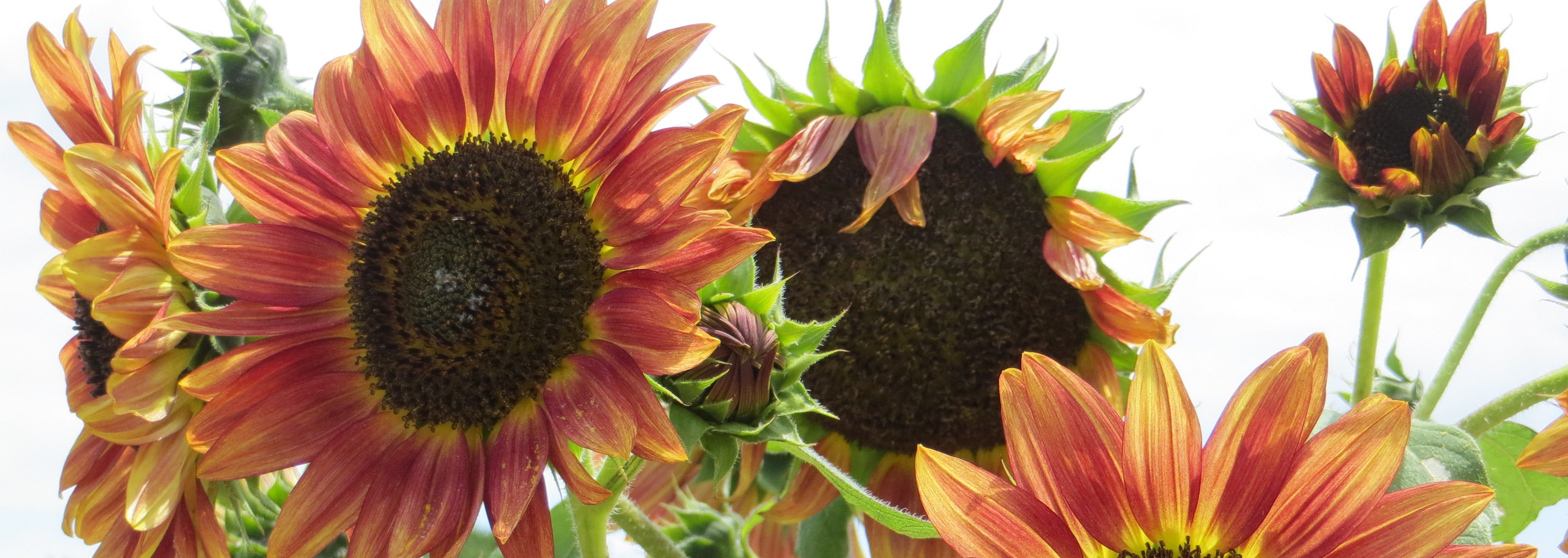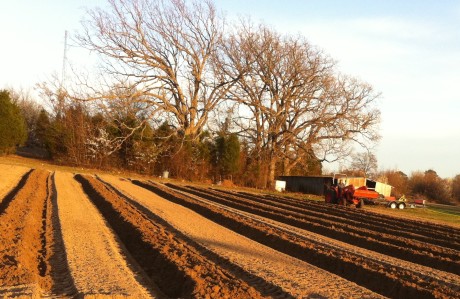Reprinted from February 2012. This one seemed appropriate to me, all over again. Hope you enjoy it, too.
It’s garden time again in Texas. We’ve already planted cool-loving potatoes and onions, spinach, carrots, lettuce and radishes in the soil. The more sensitive herbs, the tomatoes and peppers and watermelons that want to be coddled in warmth until all danger of frost has passed, are just breaking ground in their little pots, safely tucked away in the $20 greenhouse.
Plant too early and you may lose the crop to a freeze. Too late and you limit or lose the growing season. And that is just one of the many hurdles Mother Nature keeps in her play book to challenge those who dare play the game. Farming is one part sweat and sore muscles, one part strategy, one part planning and ten parts faith.
If you’ve never planted those seeds with a deep dependence on the harvest, it’s a miracle you might take for granted. (We all know where tomatoes really come from right? The grocery store.) But if you have, it’s difficult to do the work and not be awed by the process and respectful of the limited role we play, which in all our might as modern farmers is truly very small.
I stand in a field of carefully prepared rows. We have tested the soil for appropriate nutrients and made supplemental changes to raise the pH and add calcium and magnesium to match the scientifically determined targets. We’ve planned for crop rotation and plant compatibility (did you even know that beans and tomatoes don’t get along? Or that borage not only draws bees in to pollinate the plants, but also repels tomato worms?). We’ve put in the sweat and the planning, not to mention the cash. Consulted the calendar and watched the weather reports. And then we cover those little seeds with dirt and stand there looking at our bare ground.
We have every expectation from prior experience that something will grow, no matter that we can scarcely explain the microscopic physical and chemical processes that must occur and we have absolutely no control over the macro-environment.
That’s experience.
We cross our fingers that the weather will cooperate and bring rain as needed, cool temperatures for the right periods of time, warmth when the plants call for it, not too much heat and no hail storms.
That’s hope.
And then we make dinners from the last of last-year’s harvest to make room for the new. As the cupboards become more and more bare, we pay dues at the Farmer’s Market and spend more than we ought on the new water-saving drip irrigation and build a website promising customers fresh veggies in the spring. We act on our convictions and stake our livelihood and our reputations on a crop that does not yet exist.
And that’s faith.
___________________________
“Now faith is the substance of things hoped for, the evidence of things not seen.” (Hebrews 11:1, KJV).


